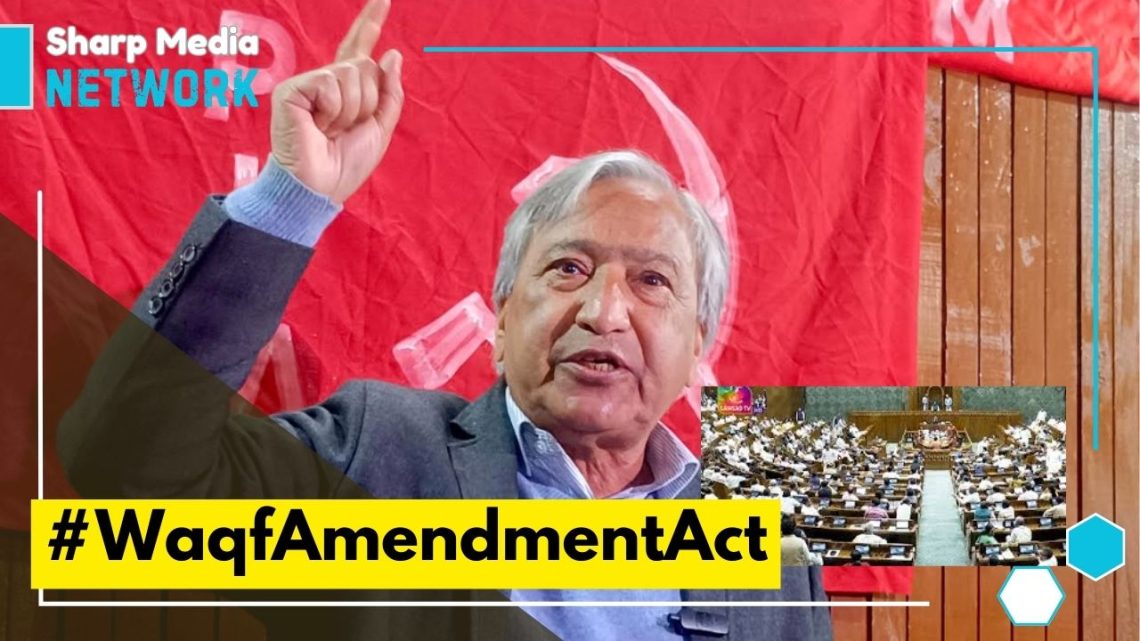
CPI(M) IIOJK Opposes Waqf Amendment, Calls for Equal Religious Rights
April 15, 2025Is India compromising the autonomy of Muslim religious institutions? The CPI(M) thinks so—and they’re speaking out.
The Communist Party of India (Marxist), or CPI(M), has voiced strong objections to the recent changes introduced through the Waqf Amendment Act. In a formal resolution, the party criticized the legislation, raising concerns about how it could negatively affect the administration of Muslim religious institutions.
Speaking from Srinagar, senior CPI(M) leader M Y Tarigami addressed the issue during a press conference. He argued that Muslims are being unfairly targeted in matters concerning their religious affairs. According to Tarigami, the government must stop singling out one community when all other religious groups are allowed to manage their institutions without interference.
He questioned why such amendments were necessary and whether they served a broader political agenda. “Why should Muslims be treated differently?” Tarigami asked. “Other religions are handling their own religious matters independently, so why this selective scrutiny?”
Tarigami stressed that religious freedom is a constitutional right and should be protected for all communities, without bias. He pointed out that religious autonomy is central to a pluralistic society like India, where diverse beliefs coexist. Undermining this principle, he said, sets a dangerous precedent.
The resolution passed by CPI(M) calls on the central government to reconsider the amendment and consult with minority community leaders before making decisions that directly affect them. The party fears that the new legal provisions could centralize control over Waqf properties and diminish the self-governance of Muslim religious bodies.
Further, Tarigami emphasized that the issue is not about one religion versus another. It’s about preserving equal rights for every religious group. “Religious institutions are deeply connected to the identity and heritage of their communities,” he said. “They must be allowed to function independently.”
CPI(M)’s position adds to a growing wave of criticism surrounding the Waqf Amendment Act. Many legal experts and minority rights activists share the party’s concern, arguing that the move could pave the way for bureaucratic overreach into religious matters.
At its core, the party’s stance is about protecting India’s secular values. The CPI(M) warned that laws appearing to target specific communities could lead to social unrest and erode public trust in democratic institutions.
CPI(M) has demanded that the government uphold its duty to treat all citizens equally under the law. The party believes that safeguarding religious autonomy is essential to maintaining harmony in a multicultural nation.

